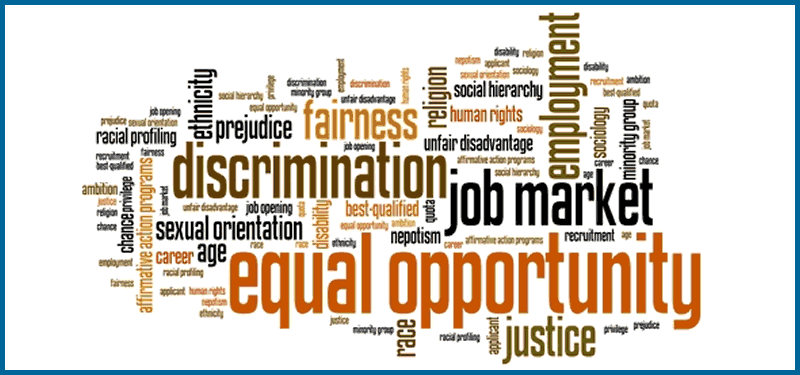|
Listen to this Article
|
Introduction
Are you being sexually harassed at work? Have you experienced sex-based or racial discrimination at the hands of your supervisor? Did your employer retaliate against you because you need workplace accommodations for your disability? Whenever someone in California experiences harassment or discrimination at work, they are barred from filing a lawsuit in civil court unless and until they first file a claim with the Department of Fair Employment and Housing (DFEH) or the Equal Employment Opportunity Commission (EEOC). But choosing which agency to file with is not very straightforward.
The DFEH is a California-based agency charged with enforcing various California civil rights laws. In the employment context, those laws are most notably the Fair Employment and Housing Act (FEHA) and the California Family Rights Act (CFRA).
The EEOC tackles the enforcement of federal laws against employment discrimination. These include Title VII of the Civil Rights Act of 1964 (“Title VII”), the Americans with Disabilities Act (ADA), the Equal Pay Act (EPA), the Age Discrimination in Employment Act (ADEA) and the Genetic Information Nondiscrimination Act (GINA).
Attorneys at the California Civil Rights Law Group can help you navigate this decision, but this three-part series of blog posts can help get you started. Here are some of the questions and notable differences we will explore to guide you in choosing the best course of action for you:
- What are the investigative and prosecutorial powers of each agency?
- Are my damages limited depending on which agency I file with?
- How many employees must my company have to be subject to the federal and state laws?
- What are the protected bases under the laws that each agency deals with?
- Is there a difference in what I can do with a Right to Sue letter from each agency?
- What are the timing restrictions for when I need to file with each agency?
- What are the timing restrictions for when I need to file my civil lawsuit after getting a Right to Sue letter from one of the agencies?
- What do I need to prepare before filing with the EEOC or DFEH, or calling an attorney?
- Are there any other agencies I need to file with to satisfy the “administrative exhaustion” requirement?
- Ultimately, is it best for me to file with the EEOC, the DFEH, or some other agency?
- Should I file on my own, or should I get an employment attorney like those at the California Civil Rights Law Group?

The Investigation and Right-to-Sue
Both the EEOC and the DFEH have limited resources, so one of the primary functions of both agencies is to issue “right-to-sue” letters. Receipt of one of these notices satisfies the “administrative exhaustion” rule and gives the claimant the go-ahead to file a civil lawsuit.
Sometimes the agencies engage in an investigative process first. This can be long and drawn-out, and often less effective or efficient than filing a private lawsuit. But the investigators have access to information that private attorneys cannot get before filing a formal lawsuit, which may make the wait worthwhile. Also, when an employee makes an initial showing of a claim, EEOC encourages mediation and offers the option to get a written response from your employer regarding the workplace conduct that you believe to be discriminatory, which can inform you and your future attorney about the strength of your case.
But claimants should understand that the EEOC will not act as the employee’s representative during the investigation and before reaching a determination in the claim; they adopt a neutral and fair investigative and prosecutorial stance. If the EEOC does not find enough facts to support the complaint, it will issue a right-to-sue notice, which allows the party to move forward with private action.
If the EEOC finds merit to the claim in the course of an investigation, the EEOC will first work to settle the viable claims. If unsuccessful, they can prosecute the employer or sue on behalf of an individual as a party in interest, though they may still choose not to—both the DFEH and the EEOC will balance the rights of the individuals affected and the interests of the public against their not budgetary and resource constraints.
If the DFEH is the investigating agency, they will draft a formal complaint following an investigation, which they will also file with the EEOC. The DFEH can then litigate the case at a public Fair Employment and Housing Commission (FEHC) hearing, or move the case to civil court if seeking emotional distress damages or administrative fines. The DFEH will litigate for the complainant as the real party in interest.
Power and Authority
The EEOC can investigate a charge and has the power to issue subpoenas in connection with an investigation. They then have the authority to remedy certain unlawful discriminatory practices. For instance, they can sue an employer to enjoin further violations (in spite of enforceable and binding arbitration agreements). The EEOC can also obtain monetary damages for wronged individuals, and even seek civil action against an employer if they are unable to settle a case.
The DFEH also holds accusatory, investigatory, and prosecutor powers. Like the EEOC, the DFEH can issue subpoenas, take depositions, serve written interrogatories, and pursue a civil suit. The DFEH also has the authority to issue cease-and-desist orders, award wage violation damages, order payment for emotional distress damages, and issue administrative fines.
Available Damages
Title VII does permit compensatory damage awards for emotional distress (emotional pain, suffering, inconvenience, mental anguish, loss of enjoyment of life, etc.). The cap on compensatory damages for Title VII claims against companies with over 500 employees filed with the EEOC is $300,000. But Title VII also authorizes recovery for lost wages, future lost wages and other out-of-pocket expenses that a discriminatory employment decision may cause, such as medical expenses and moving costs. These damages are recoverable in full and not subject to a cap. Title VII violations of intentional discrimination by nongovernmental entities—including disparate treatment claims—are also subject to punitive damages.
Both compensatory and punitive damages are also available under FEHA, though there is a $150,000 cap for emotional distress damages. A FEHC ruling may also award expert witness fees and reasonable attorney fees to the prevailing party, though this is largely discretionary; FEHC will not usually order a losing plaintiff to pay the employer’s attorney fees and costs. This is similar with the EEOC, which will never require that a plaintiff pay for the attorney fees and costs. If either agency sues on your behalf and does not prevail in litigation, the respective agency covers all of the costs of the suit. Note that these limits on damages do not apply to private lawsuits, which is another reason why it may behoove someone with strong discrimination or harassment claims to call a firm like the California Civil Rights Law Group to retain an attorney.
Laws and Protected Bases
Typically, people file with the EEOC if they intend to pursue federal employment discrimination claims under certain laws: Title VII of the Civil Rights Act of 1964 prohibits discrimination based on race, color, national origin, sex (which the EEOC interprets as including sexual orientation and gender identity), and religion; the Equal Pay Act, prohibiting wage disparity based on sex; the Rehabilitation Act of 1973 and the Americans with Disabilities Act (ADA) of 1990, which cover discrimination based on physical or mental disability; the Age Discrimination in Employment Act (ADEA); the Pregnancy Discrimination Act; etc.
The DFEH handles state-level employment discrimination claims, primarily by using FEHA and the California Family Rights Act (CFRA). FEHA prohibits discrimination and harassment based on race, color, religion, sex, gender identity, sexual orientation, marital status, national origin, ancestry, mental and physical disability, medical condition, age, and pregnancy. FEHA also protects against employer retaliation based on any of these protected classes. Under FEHA, the “employer” can be a public or private entity, a labor organization, or an employment agency.
CFRA primarily applies to employers with more than fifty employees. CFRA establishes sexual harassment training requirements and provides job-protected leave for childbirth, adoption or fostering of a child, for an employee’s own serious health condition, and for serious health conditions of an employee’s spouse or immediate family member. If an employer has at least five employees, CFRA requires up to four months of protected leave for childbirth or pregnancy-related disabilities or medical conditions.
Number of Employees Thresholds
Some employers—mainly smaller ones—are not subject to federal laws enforced by the EEOC. Title VII claims, ADA claims, and some harassment claims can only be brought against entities with at least fifteen employees. And an entity must have at least twenty employees to be subject to the ADEA. Equal Pay Act claims, however, are viable against employers with just two or more employees.
The DFEH employee thresholds are generally easier to meet; there need only be one employee for harassment claims, and five or more for discrimination claims.
Timing: When to File, When to Sue
For the EEOC, the cutoff for filing is 180 days after the illegal action occurred. This extends to 300 days if the claim is against a state or municipal agency or if the claimant also files a concurrent complaint with the DFEH. But a federal employee filing a harassment claim with the EEOC is on a much shorter timeframe: they must file within 45 days of the harassing conduct. Note that regardless of these general guidelines, many governmental agencies (including all federal agencies) require that an employee preserve their rights by contacting an Equal Employment Opportunity (EEO) counselor to start the complaint process within 45 days of the alleged discriminatory event.
Once the EEOC issues a right-to-sue letter, the claimant has ninety days to file a claim in civil court, else the right to sue on those claims will be lost.
The DFEH requires a filing no later than one year after the date of the most recent unlawful act. After receiving a DFEH right-to-sue letter, the claimant has sixty days in which to serve the letter on the defendant(s). And the employee has one year from the date of the right-to-sue letter to file their lawsuit.
What You Need Before You File
A little preparation before filing with the EEOC or the DFEH, or calling a law firm like the California Civil Rights Law Group to inquire about representation, is a good idea. Here is the type of information that you should gather:
- The name of your employer (or former employer). TIP: find the formal name of the business on your paycheck, then check https://businesssearch.sos.ca.gov/ to ensure that they are incorporated in California and get the mailing address.
- Write out a timeline or a description of the discriminatory actions (sexual harassment, racial slurs, race or sex-based retaliation like firing and differing treatment, etc.) since you were hired. Be sure to include the dates of when each act happened and note who witnessed each event.
- Note the basis on which you believe you were discriminated against (e.g. race, sex, pregnancy, age, disability, religion, sexual orientation, etc.).
- Make a list of witnesses with their contact information and a sentence or two of what you think they know or saw that they can attest to.
- Gather all documents related to your claims. For example, save emails, take screenshots of relevant text messages, get a copy of your personnel file, etc.
The information in this blog is provided for general informational purposes only and is not intended to be legal advice. No attorney-client relationship is formed nor should any such relationship be implied. Nothing on this blog is intended to substitute for the advice of an attorney. If you need legal advice, please consult with an attorney like those at the California Civil Rights Law Group.
If you think you experienced sexual harassment, race-based discrimination, retaliation, or other illegal treatment in your work place, reach out to one of our San Francisco Bay Area attorneys with expertise in these issues. No two situations are alike, but with offices in Oakland and San Anselmo, our employment discrimination attorneys make it easy to have a confidential consultation on any potential civil rights violations that you may be facing.




